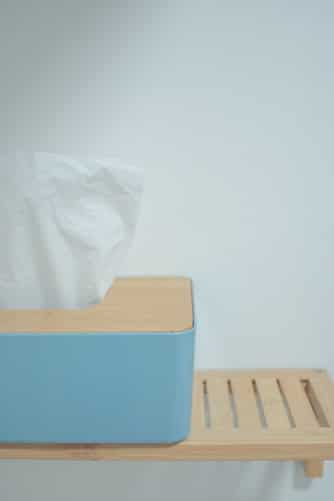You’ll see post-nasal drip come up on a list of symptoms for a number of conditions. But do you actually know what this commonly referenced symptom is?
Below are the answers to all the questions you never thought you wanted to know about your post-nasal drip.
What Is Post-Nasal Drip?
The glands in your nose and throat are regularly producing mucus in order to:
- Keep your nasal membrane moist
- Fight infections
- Catch unwanted debris
But sometimes your nose and throat will produce too much mucus, which you can feel dripping down your nose into your throat. This is known as post-nasal drip.
What Causes a Post-Nasal Drip?
Excess mucus has multiple causes, including:
- Deviated septum
- Nasal polyps
- Common cold
- Allergies
- Bacterial infection
- Sinus infection
- Certain medications (e.g. birth control and blood pressure)
- Pregnancy
There are also non-medical causes, which include eating spicy food, dry air and chemical fumes.
What Are the Most Common Post-Nasal Drip Symptoms?
Feeling mucus drip down the back of your throat can make you feel like you constantly have to clear your throat and cough. This can lead to a sore or scratchy throat, bad breath and nausea when the mucus reaches your stomach.
Should You See a Doctor?
Usually, a post-nasal drip is more bothersome than serious, and will often resolve on its own. You should, however, make an appointment with your ear, nose and throat doctor if your post-nasal drip is getting worse, has lasted for longer than ten days, you develop a fever, have difficulty breathing or your mucus has a strong odor.
What Treatments Are Available for a Post-Nasal Drip?
Over-the-counter decongestants and antihistamines can help treat your post-nasal drip.
Getting enough sleep, drinking plenty of water and using a saline nasal spray may also help ease your symptoms.
Can You Prevent a Post-Nasal Drip?
As a post-nasal drip is a common symptom of a cold or infection, the best way to prevent catching something is by avoiding contact with those who are sick and practicing good hand hygiene by washing your hands often.
If your post-nasal drip is the result of allergies, you should avoid your triggers and look into immunotherapy for long-term treatment.
To learn more about treating or preventing a post-nasal trip or to schedule an appointment with an ear, nose and throat expert, contact PDX ENT today.



